Several controversial new Bills with implications for the HE sector were introduced through the Queen’s Speech – which was very political this year (you’ll see what we mean). There’s a lot to say so it’s a longer update and we’ve focussed mainly on the parliamentary shenanigans this week.
Regular BU readers will know that we like to look to the horizon fairly regularly to see what else is heading our way. The stuff in the Queen’s Speech for HE, while interesting, is just getting us started on what this year will bring – the big stuff is all still to come. Here’s the latest version of the Policy team’s horizon scanning.
Queen’s Speech
You can read the full Queen’s Speech here and peruse the Briefing Pack (which contains the background information. The Queen’s Speech announced over 25 Bills. Proposed new legislation that is of most interest to HE:
- Skills and Post-16 Education Bill
- Professional Qualifications Bill
- Higher Education (Freedom of Speech) Bill
- Boycotts, Divestment and Sanctions legislation
Below is the most relevant content from the speech or the accompanying briefing notes, with new or key content in blue. We’ve more to say on the free speech and skills/lifelong learning elements so these follow below. We’ve covered the research content in the research section below.
Professional Qualifications Bill
The purpose of the Bill is to:
- Create a new framework to recognise professional qualifications from across the world to ensure the UK can access professionals in areas of a workforce shortage. This will replace the interim system that gives preference to professional qualifications from the EU, Switzerland, Norway, Iceland and Liechtenstein.
- Enable the Government to provide UK regulators with a consistent set of powers to enter into agreements with regulators overseas to recognise professional qualifications.
The main benefits of the Bill would be:
- Ensuring there is a clearly identified set of priority professions where there is demand for skills from overseas, such as nurses and teachers and enabling qualifications from around the world to be recognised.
- Supporting our key regulated professions to attract the brightest and best talent from around the world by creating a new framework for recognising qualifications from overseas.
- Allowing regulators to continue to set and maintain high professional standards.
- Strengthening the UK’s global trading status, supporting the UK and regulators in realising opportunities for UK professionals to deliver services in markets overseas.
- Improving the transparency around the entry and practice requirements of regulated professions, such as medicine, nursing and teaching.
The main elements of the Bill are:
- Enabling the UK to implement its international agreements on professional qualifications and to allow regulators to enter into reciprocal agreements with their international counterparts to facilitate the recognition of professional qualifications. This will support UK professionals to deliver services in markets overseas.
- Making sure regulators have the information and flexibility they need to regulate professionals effectively who have qualified in a different part of the UK.
- Requiring regulators to publish details about entry and practice requirements making information about careers more accessible and raising public confidence in regulated professions.
- Introducing a new system for recognising all architects who qualified overseas. This will expedite new international entrants to the Architects Register in the UK while requiring them to demonstrate an understanding of the specific UK landscape.
BEIS’ post speech press release: The Professional Qualifications Bill will mean skilled professionals from around the world can seek recognition to practise in the UK in areas where their skills are in need. Supporting the UK’s key regulated professions to deliver the vital services on which we rely is a priority for the government. Regulators are the experts in their field and must have the autonomy to set the standard required to practise in the UK, ensuring quality and safety.
Turing Scheme
- The Government has introduced the Turing Scheme, a new international educational exchange scheme that has a global reach. This represents an opportunity for young people across the UK, particularly those from disadvantaged backgrounds, to work and study across the world, as we build back stronger.
- The Turing Scheme is backed by £110 million of funding, and in its first year will support around 35,000 participants in universities, colleges and schools to go on placements and exchanges around the globe. The sector has welcomed this new global scheme.
- The Turing Scheme is UK-wide, with education institutions eligible to apply across England, Scotland, Wales and Northern Ireland.
- The new scheme will help level up opportunities by targeting students from disadvantaged backgrounds and areas which did not previously have many students benefiting from Erasmus+, making life-changing opportunities accessible to everyone across the country.
- The scheme will be global, with every country in the world eligible to partner up with UK institutions, unlike Erasmus+, which is EU-focused.
- This scheme will be a key part of our long-term ambitions for a Global Britain. [Perhaps the subtext here is stop complaining about the funding cuts and the lack of reciprocal exchange this is all you’re getting. Unless you live in Scotland, Wales or Northern Ireland.]
Boycotts, Divestments and Sanctions – another very political one
The purpose of the legislation is to deliver the manifesto commitment to stop public bodies from imposing their own approach or views about international relations, through preventing boycott, divestment or sanctions campaigns against foreign countries.
The main benefits of the legislation would be preventing divisive behaviour that undermines community cohesion by preventing public bodies from imposing their own approach or views about international relations via their own boycott, divestment or sanctions campaigns. There are concerns that such boycotts may legitimise antisemitism.
The main elements of the legislation are stopping public bodies from taking a different approach to UK Government sanctions and foreign relations. This will be in the form of preventing public institutions carrying out independent boycotts, divestments and sanctions against:
- Foreign countries, or those linked to them.
- The sale of goods and services from foreign countries.
- UK firms which trade with such countries, where such an approach is not in line with UK Government sanctions.
- The measures will cover purchasing, procurement and investment decisions which undermine cohesion and integration.
Draft Online Safety Bill
The purpose of the draft Bill is to:
- Introduce ground-breaking laws to keep people safe online whilst ensuring that users’ rights, including freedom of expression, are protected online.
- Build public trust by making companies responsible for their users’ safety online, whilst supporting a thriving and fast growing digital sector.
- Designate Ofcom as the independent online safety regulator.
The main benefits of the draft Bill would be:
- Delivering our manifesto commitment to make the UK the safest place in the world to be online, through improving protections for users, especially children, whilst protecting freedom of expression.
- Ensuring there is no safe space for criminal content and activity online.
- Restoring public trust in the services that online platforms offer and supporting a thriving, fast growing digital sector.
The main elements of the draft Bill are:
- Placing a duty of care on companies to improve the safety of their users online. This will require them to tackle illegal content on their services and to protect children from harmful content and activity online. They must seriously consider the risks their services pose to users and take action to protect them.
- Requiring major platforms to set out clearly in their terms and conditions what legal content is unacceptable on their platform and enforce these consistently and transparently.
- Requiring platforms to have effective and accessible user reporting and redress mechanisms to report concerns about harmful content, and challenge infringement of rights (such as wrongful takedown).
- Designating Ofcom as the independent online safety regulator and giving it a suite of robust enforcement powers to uphold the regulation. This will include very large fines of up to £18 million or 10 per cent of annual global turnover – whichever is greater – as well as business disruption measures. The Government expects Ofcom to prioritise enforcement action where children’s safety has been compromised.
- Boosting public resilience to disinformation through media literacy and supporting research on misinformation and disinformation.
Education Recovery Plan
As we build back from the pandemic, we are putting in place a package of measures to ensure no child is left behind as a result of the education and extracurricular activities they may have missed out on. We are working with the Education Recovery Commissioner – Sir Kevan Collins – to
- develop an ambitious, long-term plan that builds back a better and fairer education system in England and delivers significant reforms to address the scale of this challenge.
- As a first step, over the past year we have already provided over £2 billion to schools, colleges and early years settings to support pupils’ academic and wider progress. This includes £1.7 billion in funding to support education recovery and over £400 million is being invested to support access to remote education including securing 1.3 million laptops and tablets.
Research
Queen’s speech – this mostly not new, no legislation, just a little update on where we are
- We are committed to making the UK a global superpower, with a world leading research and development environment. Innovation is a key pillar of our approach to tackling the effects of the pandemic and levelling up the UK.
- R&D will continue to be critical to the economic and social recovery from the impact of COVID-19, enabling us to build back better for a greener, healthier and more resilient UK. Our goal is to further strengthen science, research and innovation across the UK, making them central to tackling the major challenges of today and in the future.
- On average, each public pound invested in R&D across our portfolio ultimately leverages around £2 of additional private sector investment and creates £7 of net benefits.
- The Government is investing £14.9 billion in R&D in 2021-22. This investment means Government R&D spending is now at its highest level in four decades. We are committed to increasing public expenditure on R&D to £22 billion, helping to deliver on our target to increase total UK R&D investment to 2.4 per cent of GDP by 2027.
- In the R&D Roadmap, we set out our priorities for boosting innovation in the economy. We want to make the UK a world-leading place to innovate and bring new products and services to market.
- BEIS will publish an Innovation Strategy this summer to inspire, facilitate and unleash innovation across the UK; supporting and harnessing the tremendous capability of UK innovators to boost future prosperity locally and nationwide.
- We have already introduced the Advanced Research and Invention Agency (ARIA) Bill, to unleash the potential of the UK’s world-class research and science base.
- Our Review of Research Bureaucracy will advise on practical solutions to substantially reducing unnecessary research bureaucracy, freeing up researchers to devote more time to their academic roles and pursuing world-class research.
BEIS published a press release on the research focussed announcements made in the Queen’s Speech stating it has reinforced the UK’s commitments to becoming a global science superpower, taking advantage of the UK’s departure from the EU, and strengthening our energy security as we transition to a net zero future.
Queen’s speech – Advanced Research and Invention Agency – again, not new, just a progress report
The ARIA Bill was first introduced in March 2021 (after a lot of prior discussion and Committee sessions) and has been carried over from the 2019-21 parliamentary session. The Government have committed £800 million to fund ARIA.
The purpose of the Bill is to:
- Create the Advanced Research and Invention Agency (ARIA) as a new statutory corporation to fund high-risk, high-reward R&D.
- Give ARIA broad powers to take an innovative approach to research funding, and a mandate for higher tolerance for failure when pursuing high-risk research.
- Define ARIA’s relationship with the Government, giving it autonomy and freedoms to manage its day-to-day affairs.
- Support this agile operating model by freeing ARIA from some standard public sector obligations.
The main benefits of the Bill would be:
- Creating a new agency to fund high-risk, high-reward research, to enhance the UK’s R&D offer and help cement the UK’s position as a global science superpower.
- Supporting the creation of ground-breaking technology, with the potential to produce transformational benefits to our economy and society, new technologies and new industries. For example, the US Advanced Research Projects Agency took a similar approach to funding and supported the breakthrough research that underpins the internet and the Global Positioning System (GPS).
- Diversifying the R&D funding system and providing innovative and flexible tools to push the boundaries of science at speed, reaching an even wider range of the research community.
The main elements of the Bill are:
- Creating ARIA as a statutory corporation.
- Providing broad functions for ARIA to conduct, support or commission research-related activities, with regard to the desirability of doing so for the benefit of the UK.
- Explicitly tolerating failure in pursuing ambitious research, development, and exploitation.
- Establishing an arm’s length relationship to Government, set out in ARIA’s procedure, membership and appointments processes, with limited information and direction rights for the Secretary of State.
- Providing powers for the Secretary of State to dissolve ARIA that can only be exercised after 10 years.
This week Research Minister, Amanda Solloway, published a written ministerial statement setting out the £200,000 budget and use of an agency to source the best candidates for the ARIA CEO and Chair roles: Given the unusual autonomy placed on the CEO and Chair roles for ARIA, it is vital we source the best possible candidates, and get them started as soon as possible. We have planned an extensive outreach strategy to ensure we maximise the size of the talent pool. We will expand and enhance the search for the right individuals, including by procuring the services of a respected international Executive Search agency from the Government’s Commercial Framework. This agency will not have any part to play in candidate selection or interview sifting, these activities will be the responsibilities of BEIS Secretary of State and the ARIA Recruitment Panel, respectively.
Regional R&D
The Higher Education Policy Institute has published a report on regional policy and R&D finding that geographic concentration of Research and Development (R&D) investment is a widespread characteristic of research globally and is not unique to the UK.
The report highlights that there is no single picture of the distribution of research funding, with the pattern depending on the metric used.
Recognising that the levelling up agenda is not the first attempt to stimulate regional investment and address regional inequalities in the UK, the authors argue that future regional initiatives must be built on firmer foundations – with much wider recognition of the complex picture of UK research funding among policymakers.
The report makes six recommendations to develop more resilient regional R&D initiatives.
- Set out measurable objectives: A clear vision and regional metrics for success could advance the regional R&D agenda.
- Focus on impact: Regional metrics should focus on the impact of research, rather than the level of investment.
- Build greater strengths through partnerships: Foster inter-regional collaborations to strengthen the impact of research.
- Create strong civic partners at regional and local levels: Enable civic authorities to lead regional R&D initiatives within a national framework.
- Integrate regional, national and global interests: Strong relationships between national and regional R&D are essential.
- Ensure financial sustainability for university research: Improving the sustainability of funding would enable stronger regional R&D.
Quick News:
- Wonkhe highlight:
- The Financial Times has an opinion piece, arguing that opaque bureaucracy is holding back university spinout companies in the UK and Europe.
- The LSE Impact Blog has a piece from Elizabeth Gadd, which argues that a commitment to research assessment means a commitment to addressing the problem of global university rankings.
- The Government have announced £22 million of new investment to build cyber security resilience globally including a focus on developing countries. The UK, jointly with INTERPOL, is setting up a new cyber operations hub in Africa working across Ethiopia, Ghana, Kenya, Nigeria and Rwanda to support joint operations against cybercrime. The Foreign Secretary said: We are working with like-minded partners, to make sure that the international order that governs cyber is fit for purpose. Our aim should be to create a cyberspace that is free, open, peaceful and secure, and which benefits all countries and all people. We want to see international law respected in cyberspace, just as we would anywhere else. And we need to show how the rules apply to these changes in technology, the changes in threats, and the systemic attempts to render the internet a lawless space.
Admissions
The Post Qualification Admissions (PQA) debate is another significant Government intervention in HE right now. PQA has been bumbling along as an idea for years but the current Government seems set on change. The recent consultation highlights that although the Government are willing to push change through they’re undecided about which method, and all proposed approaches have flaws. You can read BU’s response to the consultation. If you read our response, you’ll see we think it creates more problems than it solves. As others have said, is this a solution looking for a problem.
Student Recruitment: Wonkhe have a blog on retaining the most useful and impactful methods on online student recruitment. It’s not just about engaging students who cannot afford to travel or live in rural/remote areas anymore. It also mentions targeted recruitment and the increasing harnessing of data: …recruitment and admissions professionals could begin to think of themselves as citizen-scientists, building data models to deliver the kind of intelligence and insight required to bring prospective students into the learning community – and enable those first exploratory steps on the road to a lifelong relationship.
Exams: Ofqual has released a non-technical guide for students explaining the awards process and how to appeal grades for A levels and equivalent technical and vocational qualifications.
Higher Education (Freedom of Speech) Bill
As introduced by the Queen’s Speech the purpose of the Bill is to: fulfil the manifesto commitment to strengthen academic freedom and free speech in universities in England. [Interesting phrasing – do they feel they have to but not really want to, or is this hugely political Bill something they really care about? It seems really odd to prioritise this one as one of the first Bills after the speech]. The Government’s press release trailing the Bill: Universities to comply with free speech duties or face sanctions. The policy paper that has been the foundation for this is here (you may recall the SoS’s colourful and controversial introduction). Wonkhe also have an excellent blog on free speech – everything you want to know – which highlights some of the challenges we discuss below.
And others are questioning the whole premise for the Bill – Phil Baty (THE) on Twitter referred to some stats, from the OfS Prevent monitoring report 2017-18 – issued June 2019
There are many stages for this before it becomes law and much discussion still to come: link to bill itself. .
The main benefits of the Bill would be:
- Strengthening legislation on freedom of speech and academic freedom in higher education in England, with duties on higher education providers and students’ unions.
- Ensuring that universities in England are places where freedom of speech can thrive for all staff, students and visiting speakers, contributing to a culture of open and robust intellectual debate.
- Ensuring that academic staff feel safe to question and test received wisdom and put forward new ideas and controversial or unpopular opinions, without being at risk of losing their jobs, privileges or promotion.
- Creating ways for staff, students and visiting speakers to get redress if they suffer a loss as a result of the duties being breached.
The main elements of the Bill are:
- Including new freedom of speech and academic duties on higher education providers and students’ unions. The regulator, the Office for Students, will have the power to impose fines for breaches.
- Ensuring that, for the first time, students’ unions at universities will have to take steps to secure lawful freedom of speech for their members and others, including visiting speakers.
- Creating a new role of Director for Freedom of Speech and Academic Freedom at the Office for Students, with a remit to champion freedom of speech and academic freedom on campus, and responsibility for investigations of infringements of freedom of speech duties in higher education which may result in sanctions and individual redress.
- Enabling individuals to seek compensation through the courts if they suffer loss as a result of breach of the freedom of speech duties.
We are concerned about the tangled web that this will create. Some of the problems that are likely to come up are illustrated by this: Universities minister Michelle Donelan was interviewed on PM on Radio 4 yesterday, where host Evan Davies suggested the bill’s provisions could clash with government efforts to tackle antisemitism. Donelan subsequently posted a tweet thread rebutting the claim. Donelan has since been contradicted by the PM and the Secretary of State. This will all need to be clarified at some point, although of course, in practice, someone looking at an incident would in any event have to look at all the factual and contextual circumstances of an incident as well as the potentially conflicting rules. The problem is this is all so political that these controversial disputes will be fought out in the open, in an ill- or at best partially- informed social media frenzy.
Skills and Post-16 Education Bill
Since the Queen’s Speech the Government has introduced this Bill with the Lifetime Skills Guarantee as its centrepiece. The Bill has not yet been published, but will form the legislative underpinning for the reforms set out in the previously published Skills for Jobs White Paper. The Government say the proposed new law create a post-16 and adult education and training system that is “fit for the future, providing the skills that people need for well-paid jobs and opportunities to train throughout their lifetime.” The rhetoric surrounding the introduction of the Bill reminds the PM outlined his vision for a radical change in skills provision in a speech last year. He made clear that the 50 per cent of young people who do not go to university have been historically deprived of the chance to find their vocation and develop a fulfilling, well-paid career. This rather sets the tone and the translucent Government intention behind the Bill. However, it remains to be seen whether it will work out as the Government intends.
And it will be expensive – so are there cuts to HE funding round the corner to help fund it?
Education Secretary Gavin Williamson said – As we rebuild from the pandemic, we’ve put reforming post-16 education and skills at the heart of our plans to build back better, and as Education Secretary I have championed the often forgotten 50 per cent of young people who don’t go to university. Through legislation, our vision is to transform the sector and expand opportunity right across the country, so that more people can get the skills they need to get good jobs.
Meanwhile Research Professional cover the comments from the Director for Fair Access and Participation (OfS) who states that universities “must be central to the vision” behind plans to improve access to further and higher technical education.
The Queen’s Speech introduced the purpose of the Bill is to:
- Legislate for landmark reforms that will transform post-16 education and training, make skills more readily available and get more people into work as set out in the Government’s Skills for Jobs White Paper.
- Enable people to access flexible funding for Higher or Further Education, bringing Universities and Further Education colleges closer together, and removing the bias against technical education. Legislative measures will include a “new student finance system” transforming the current loan system with lifelong access to flexible funding equivalent to four years of higher-level study.
- Deliver the Prime Minister’s new Lifetime Skills Guarantee, as part of our blueprint for a post-16 education system that will ensure everyone, no matter where they live or their background, can gain the skills they need to progress in work at any stage of their lives.
- Increase productivity, support growth industries and give individuals opportunities to progress in their careers.
- Strengthen the powers of the Office for Students to take action to address low quality higher education provision.
The main benefits of the Bill would be:
- Offering adults across the country the opportunity to retrain in later life through the Lifetime Skills Guarantee, helping them to gain in-demand skills and open up further job opportunities.
- Realigning the system around the needs of employers so that people are trained for the skills gaps that exist now and in the future, in sectors the economy needs including construction, digital, clean energy and manufacturing.
- Improving the quality of training available by making sure that providers are better run, qualifications are better regulated, and that providers’ performance can be effectively assessed.
The main elements of the Bill are:
- Putting employers at the heart of the post-16 skills system through the Skills Accelerator, by enabling employers and providers to collaborate to develop skills plans aimed at ensuring local skills provision meets local needs. Meaning employers will have a statutory role in planning publicly-funded training programmes with education providers through the Skills Accelerator programme.
- Introducing the Lifelong Loan Entitlement, which will give individuals access to the equivalent of up to four years’ worth of student loans for level 4-6 qualifications that they can use flexibly across their lifetime, at colleges as well as universities.
- Strengthening the system of accountability by extending existing powers for the Secretary of State for Education to intervene where colleges have failed to meet local needs, to direct structural change where required to secure improvement, and by amending the regulation of post-16 education and training providers to ensure quality.
- Strengthening the ability of the Office for Students to assess and regulate Higher Education provision in England, ensuring that they can regulate in line with minimum expectations of quality.
There’s a lot to say about all this.
Is it truly lifelong? The change in funding has been welcomed by many but one wonders if the devil will be in the detail. In fact, is it really a cut? The four years of flexible funding for level 4-6 qualifications doesn’t seem much of a change for most HE students on an academic route – currently this is all the Government funds as standard anyway. In effect this is just reinforcing that you only have one bite of the cherry. So if an individual decides to take some flexible modules across a range of programmes and at a mix of providers, perhaps even adding some technical or vocational pathway provision in and then decides their heart lies in a particular area which requires a full degree they will have run out of tuition funding before they complete their degree. Of course, the Government might respond that the mix of modules the individual undertook were all accredited and the credit can be transferred in. However, the reality is rarely that simple.
There is also the adult worker with an undergraduate degree in psychology who wishes to retrain in an ELQ exempt subject such as midwifery (so currently they get a second set of funding). Or the manufacturing worker who took a series of courses related to his role that their employer required them to use the Government funding for – who finds themself redundant due to automation and AI and without enough credit to retrain.
Flexibility is great as long as all providers accept the credit accumulated and it doesn’t chip away at the overall pot too much to prevent the individual achieving their aspirations.
Will the Government continue to provide a second bite of the cherry for priority or work shortage areas? Probably, but it still places a lot of pressure on the young people to choose wisely for that first degree and they likely will have had little careers advice, life or work experience to know where to choose to make their mark in the world. It also perpetuates current social mobility concerns – young people from disadvantaged areas are risk adverse so may be most affected by the drip drip of frequent calls on their “pot”.
For HE it could mean little change but for individuals there isn’t a safety net. I think we all recall the controversial advert the Government had to withdraw where Fatima the dancer was expected to retrain for a career in IT.
And there was some interesting stuff tucked away in the notes accompanying the Speech on giving the OfS additional powers to enforce their quality framework.
Wonkhe shared details of a report from London South Bank and Aston Universities which makes the case for a technically focused university role in the expansion of higher technical education. The joint report – “Truly Modern Technical Education” calls for flexibility in the use of the apprenticeship levy and the proposed lifelong learning account to allow for higher education qualifications at levels four and five to form a part of a wider, collaborative, offer.
The report also argues that universities of technology could strengthen the link between skills and R&D, and that universities should play a leading role in the development of local industrial or economic strategies. It notes that 39 per cent of students enrolled in UK universities in 2019 were studying a “technical” subject.
There’s a blog too. If you read the blog ensure you read the comments responding to the blog too!
Covid
Universities Minister Michelle Donelan confirmed all students are permitted to return to campus on 17 May and acknowledged that while teaching may have finished for many they could engage in cocurricular and other on-campus activities before the end of term and enable them to have the option of engaging with their academic tutors in-person. This could include in-person career support, society events as well as other social student experiences that have had to remain remote up until now.
Research Professional report that the timing of student return shows government is ‘out of touch’ following comment from Paul Blomfield, MP and chair of the All-Party Parliamentary Group for Students which stated the decision to reopen campuses so late in the academic year exposes the government as out of touch with higher education. He continued: After almost half a year of being told to stay away from campuses, students are frustrated about being an afterthought and angry about the lack of support from the government…On rents and lost earnings, they’ve been hit hard, without the support available to others.
UCU said: This looks like a stupid end to a stupid year beset by government mismanagement.
Read more from Research Professional on the reopening in Too Little, Too Late.
Wonkhe: All students can now “return” to campus. But what for? Wonkhe’s short piece highlights how universities’ hands are still tied in offering Donelan’s meaningful ‘activities’:
- Ah yes. Right down to this late in the academic year, DfE drops providers in it. It may as well have said “we’ve said they can, so it’s up to them if they don’t! If you feel you’ve not been getting the quality, quantity and access to tuition, you can complain to the OIA…”
- It’s worth remembering that as of Monday it’s still the case that to be exempt from the indoor gatherings rules (rule of six or two households), the gathering has to be necessary for the purposes of a course of study or essential life skills training provided by a higher education provider.
- All of which means that as this mass of students “return” to campus, your Environmental Sciences tutor could show you a film as part of your course, only they stopped actually teaching weeks ago. Meanwhile if the student Environmental Society wanted to show you that film in the same venue in the same way with the same risk assessment, they can’t.
Back to Donelan’s letter which reminds about the additional £15 million hardship funding available to students through HE providers and restates the Covid testing regime. Also acknowledging the restricted access to work experience the letter announces the Graduate Employment and Skills Guide:
- We are aware that 2021 graduates will have had fewer opportunities to gain work experience (fewer internships, placements, part time jobs), and participate in extracurricular activities, experiences that traditionally help students develop employability skills. My Department has worked with Universities UK, the Association of Graduate Careers Advisory Services (AGCAS), the Institute of Student Employers, the OfS and across the sector to understand what more we can do to support graduates who are looking to enter the labour market or continue their studies at this challenging time. As a result, we have developed the Graduate Employment and Skills Guide, which signposts graduates to public, private and voluntary sector opportunities, to help them build employability skills and gain work experience or enter the labour market. The Guide also links to further study options and resources on graduate mental health and wellbeing
There are also the Graduate Employability Case Studies: these case studies showcase the breadth of innovative work and range of new measures university and college careers services have introduced to support final year students and recent graduates as they transition from university to graduate life.
There are also no guarantees that September will be a ‘normal’ restart. The letter notes the Government will issue guidance on the return to campus and support providers to respond in an agile way to any public health issues that we might encounter.
The Government’s press release covering all the above is here.
Parliamentary News
Labour leader Sir Keir Starmer conducted a mini-reshuffle of his shadow cabinet. The full list of appointments can be viewed here. Notable moves are:
- Rachel Reeves has been appointed Shadow Chancellor, with Anneliese Dodds becoming Party Chair and Chair of Labour Policy Review
- Angela Rayner has become Shadow First Secretary of State, Shadow Chancellor of the Duchy of Lancaster and Shadow Secretary of State for the Future of Work
- Wes Streeting has become Shadow Secretary of State for Child Poverty
- Rosena Alin-Khan promoted from Shadow Minister for Mental Health to Shadow Secretary of State for Mental Health
- Alan Campbell is Shadow Chief Whip
Online learning
The Quality Assurance Agency for Higher Education (QAA) has published the outcomes of their latest project, ‘Learning from the Online Pivot’, which aimed to identify what worked well and what is likely to continue as part of HE sector practice beyond the pandemic. The interim findings and case studies introduced in the briefing note form part of a wider set of insights and resources which will be made available to QAA Members in June 2021.
What matters? Reaffirming the role of outcomes-based approaches
- Outcomes-based approaches sit at the heart of the UK Quality Code for Higher Education (2018) – the sector-agreed reference point for the assurance of quality and maintenance of standards.
- Drawing on a sector survey and case study evidence, this project offers insight into how the UK sector built on considerable expertise in outcomes-based approaches to ensure positive student outcomes and progression.
What works? Exploring preliminary sector survey findings. A number of positive legacies have emerged from the pandemic period including:
- developing confidence and skills for more flexible delivery
- ensuring the content and wording of learning outcomes do not unnecessarily constrain modes of learning and assessment
- re-establishing understanding and oversight of institutional portfolios
- re-engaging with students about the importance and purpose of quality assurance
- rethinking and redesigning regulations for greater future resilience
- reflecting on, and embedding, inclusivity in courses
- increasing engagement with the idea and use of authentic assessment
Inquiries and Consultations
Click here to view the updated inquiries and consultation tracker. Email us on policy@bournemouth.ac.uk if you’d like to contribute to any of the current consultations.
Other news
- Access and Participation: UUK have a blog by Amatey Doku on closing the gap.
- Mental Health: This link has information on the Government’s £17 million mental health support package and the £7 million Wellbeing for Education Recovery programme. Both funds are for schools and colleges.
- Levelling up: Wonkhe – Andy Westwood has a blog on the tensions between economics and politics that underlie the government’s levelling up agenda
- Polar bears: No ducks to cheer you with this week but here’s the plan to re-ice the Arctic.
Subscribe!
To subscribe to the weekly policy update simply email policy@bournemouth.ac.uk. A BU email address is required to subscribe.
External readers: Thank you to our external readers who enjoy our policy updates. Not all our content is accessible to external readers, but you can continue to read our updates which omit the restricted content on the policy pages of the BU Research Blog – here’s the link.
Did you know? You can catch up on previous versions of the policy update on BU’s intranet pages here. Some links require access to a BU account- BU staff not able to click through to an external link should contact eresourceshelp@bournemouth.ac.uk for further assistance.
JANE FORSTER | SARAH CARTER
VC’s Policy Advisor Policy & Public Affairs Officer
Follow: @PolicyBU on Twitter | policy@bournemouth.ac.uk
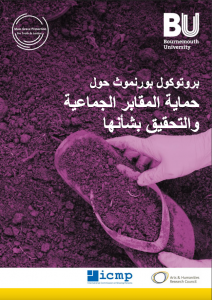 morate Mass Graves Day in Iraq, the International Commission on Missing Persons (ICMP) presented the recently published Bournemouth Protocol on Mass Grave Investigation and Protection to Iraqi authorities involved in efforts to account for missing persons.
morate Mass Graves Day in Iraq, the International Commission on Missing Persons (ICMP) presented the recently published Bournemouth Protocol on Mass Grave Investigation and Protection to Iraqi authorities involved in efforts to account for missing persons. grant leaders, researchers and activists from Nepal, Malaysia, Qatar, Saudi Arabia, and the United Arab Emirates participated in this research capacity-building event.
grant leaders, researchers and activists from Nepal, Malaysia, Qatar, Saudi Arabia, and the United Arab Emirates participated in this research capacity-building event.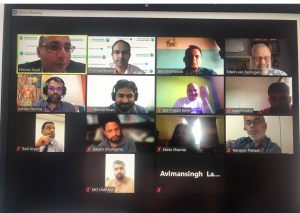 f Cooperation Council (GCC) countries, since they also need to increase the awareness and capacity on migration health issues and basic research concepts.
f Cooperation Council (GCC) countries, since they also need to increase the awareness and capacity on migration health issues and basic research concepts.
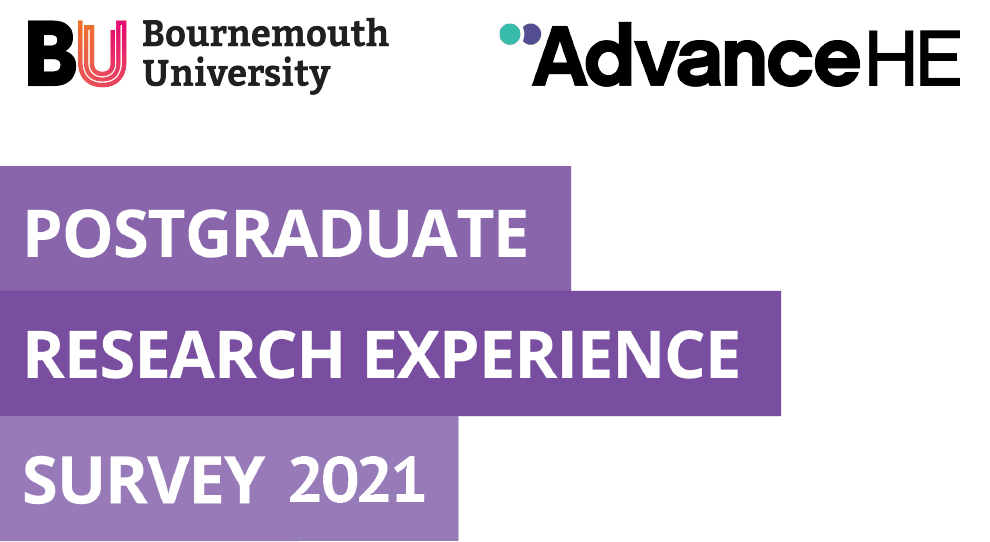
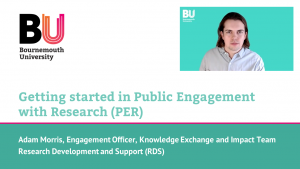

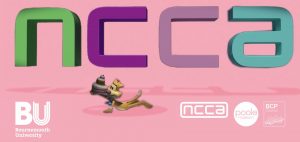
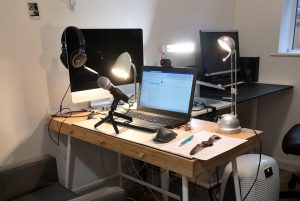
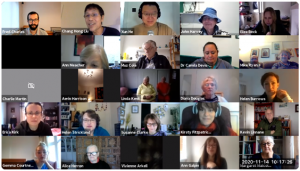
 Pinpointing prosopagnosia: the professional and social impact of achieving NHS recognition
Pinpointing prosopagnosia: the professional and social impact of achieving NHS recognition











 Beyond Academia: Exploring Career Options for Early Career Researchers – Online Workshop
Beyond Academia: Exploring Career Options for Early Career Researchers – Online Workshop UKCGE Recognised Research Supervision Programme: Deadline Approaching
UKCGE Recognised Research Supervision Programme: Deadline Approaching SPROUT: From Sustainable Research to Sustainable Research Lives
SPROUT: From Sustainable Research to Sustainable Research Lives BRIAN upgrade and new look
BRIAN upgrade and new look Seeing the fruits of your labour in Bangladesh
Seeing the fruits of your labour in Bangladesh ECR Funding Open Call: Research Culture & Community Grant – Apply now
ECR Funding Open Call: Research Culture & Community Grant – Apply now ECR Funding Open Call: Research Culture & Community Grant – Application Deadline Friday 12 December
ECR Funding Open Call: Research Culture & Community Grant – Application Deadline Friday 12 December MSCA Postdoctoral Fellowships 2025 Call
MSCA Postdoctoral Fellowships 2025 Call ERC Advanced Grant 2025 Webinar
ERC Advanced Grant 2025 Webinar Update on UKRO services
Update on UKRO services European research project exploring use of ‘virtual twins’ to better manage metabolic associated fatty liver disease
European research project exploring use of ‘virtual twins’ to better manage metabolic associated fatty liver disease